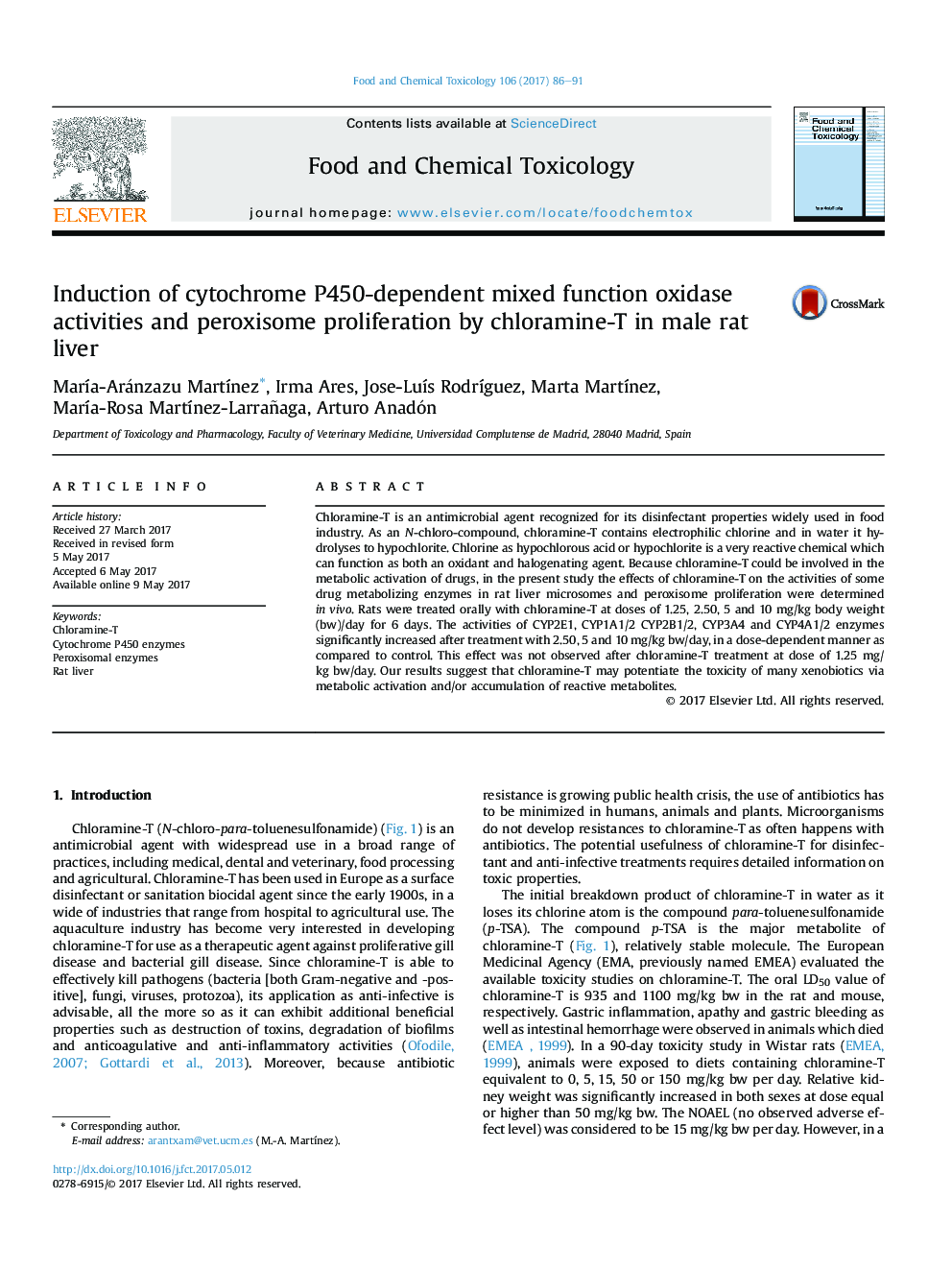| کد مقاله | کد نشریه | سال انتشار | مقاله انگلیسی | نسخه تمام متن |
|---|---|---|---|---|
| 5560111 | 1403309 | 2017 | 6 صفحه PDF | دانلود رایگان |

- Rats received orally chloramine-T (doses of 1.25, 2.25, 5 and 10Â mg/kg bw, 6 days).
- Chloramine-T induces CYP enzymes in liver microsomes and peroxisome proliferation.
- These new data contribute to understand a new mode of action involved in the chloramine-T toxicity.
Chloramine-T is an antimicrobial agent recognized for its disinfectant properties widely used in food industry. As an N-chloro-compound, chloramine-T contains electrophilic chlorine and in water it hydrolyses to hypochlorite. Chlorine as hypochlorous acid or hypochlorite is a very reactive chemical which can function as both an oxidant and halogenating agent. Because chloramine-T could be involved in the metabolic activation of drugs, in the present study the effects of chloramine-T on the activities of some drug metabolizing enzymes in rat liver microsomes and peroxisome proliferation were determined in vivo. Rats were treated orally with chloramine-T at doses of 1.25, 2.50, 5 and 10 mg/kg body weight (bw)/day for 6 days. The activities of CYP2E1, CYP1A1/2 CYP2B1/2, CYP3A4 and CYP4A1/2 enzymes significantly increased after treatment with 2.50, 5 and 10 mg/kg bw/day, in a dose-dependent manner as compared to control. This effect was not observed after chloramine-T treatment at dose of 1.25 mg/kg bw/day. Our results suggest that chloramine-T may potentiate the toxicity of many xenobiotics via metabolic activation and/or accumulation of reactive metabolites.
Journal: Food and Chemical Toxicology - Volume 106, Part A, August 2017, Pages 86-91